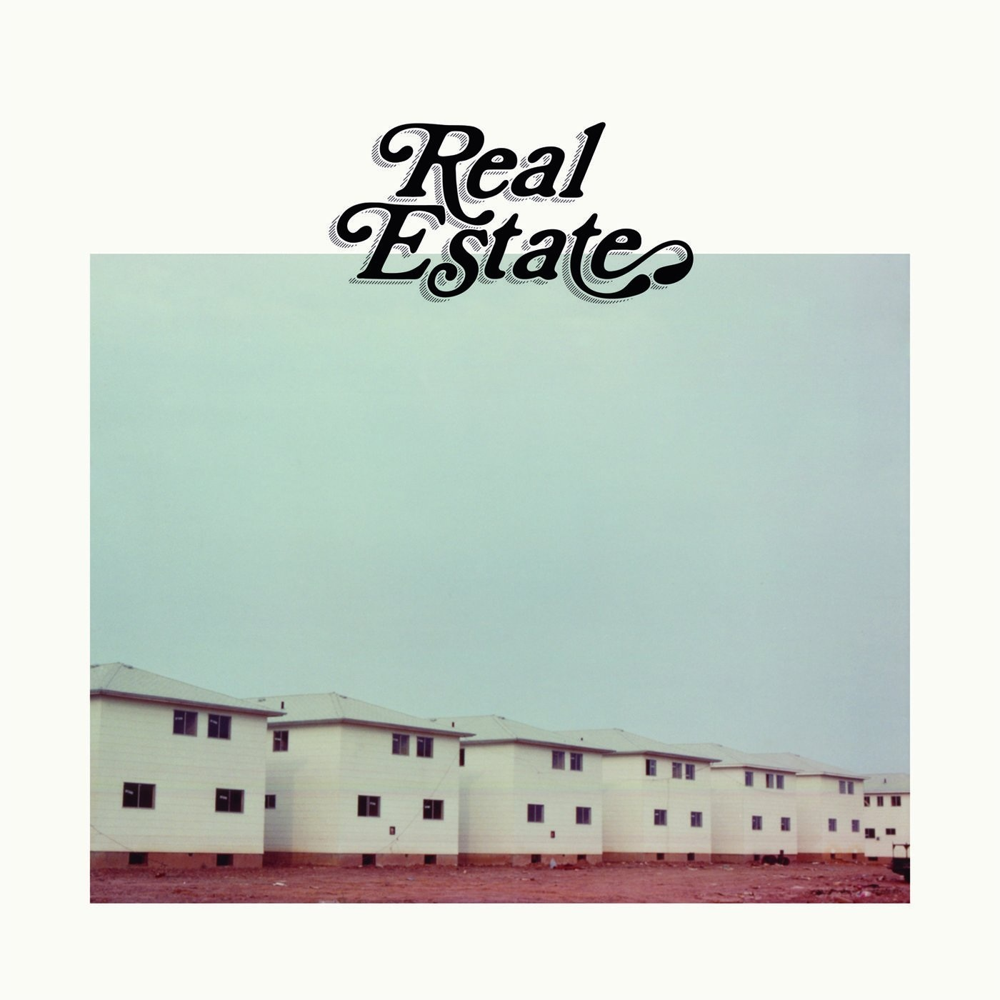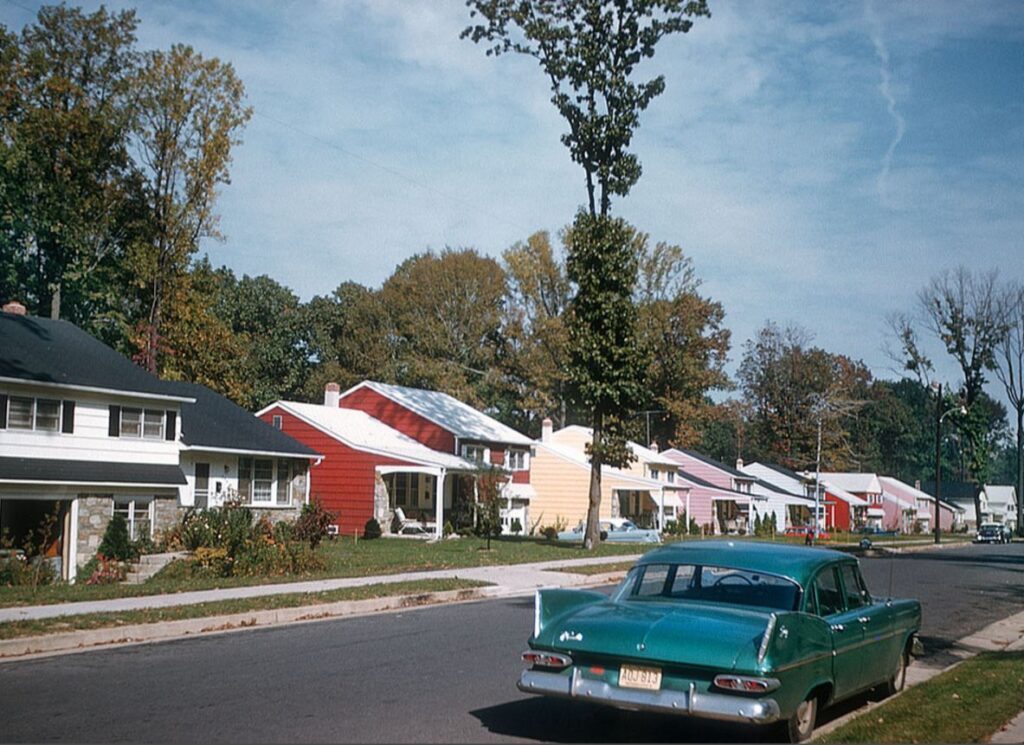
Released in 2011 on Domino Recording Co., Days is the sophomore album by New Jersey indie outfit Real Estate. At the time, it was received as a pleasant, sunlit collection of songs. Decent but not exactly groundbreaking. The indie landscape of 2011 was crowded with big statements and bold experiments. Real Estate’s gentle jangle pop stood out more for its understated charm than for any radical innovation. Critics praised the record’s warmth and consistency, though some noted that its comforts felt almost too familiar. The tracks were easy to enjoy, if easy to underrate. In other words, Days fit snugly into its moment as an “okay but not great” release. Enjoyable, modest, and mellow. Yet over time this unassuming album has quietly proven itself to be a slow burn treasure, revealing subtleties that grow ever more rewarding with age.
Sound and Style: Jangle, Haze, and Suburban Nostalgia
From the first notes of opener “Easy,” Days envelops the listener in a golden indie haze. The production is clean and unshowy, defined by chiming, jangly guitars and gently reverberating textures. Singer Martin Courtney’s vocals are soft focus. His voice isn’t forceful so much as comforting, blending into the songs like another instrument. This gives the album a wistful, dreamy quality, as if heard through the glow of memory.
Nostalgia runs deep in Days. Courtney’s lyrics paint vignettes of suburban youth. “All those aimless drives through green aisles,” he recalls on standout track “Green Aisles,” looking back on small-town summer escapades. Images of houses and gardens, streetlights and lazy afternoons populate the album, imbuing it with a longing for simpler times and familiar places. It’s a mood not unlike the one R.E.M. summoned in “Nightswimming,” and Real Estate similarly find meaning in life’s daily mundanities, turning ordinary suburban scenes into something poetic.

Musically, Real Estate stick to what they love. Melodic, classic indie pop songcraft. Their influences peek through in subtle ways. The band’s signature guitar interplay, courtesy of Courtney and Matt Mondanile, clearly follows in the lineage of earlier jangle pop forefathers. There’s a direct line from the hooks of early R.E.M. and the hypnotic strums of The Feelies to the lilting riffs on Days. Fittingly, Real Estate hail from the same New Jersey suburbs that spawned The Feelies decades before. The album’s breezy, effortless vibe also echoes fellow early 2010s indie acts like Beach Fossils and Wild Nothing, who likewise favored nimble guitars and dreamy textures over bravado.
The production by Kevin McMahon is polished but intimate. You can hear the interplay of two clean guitars winding around each other, a gently driving rhythm section, and the airy reverb that gives everything a slight soft focus glow. Key tracks illustrate the band’s delicate balancing act. “It’s Real,” with its upbeat tempo and wordless “oooh” chorus hook, is the closest thing to a single and shows Real Estate’s knack for immediate melody. “Out of Tune” and “Municipality” are more low key, riding laconic grooves and shimmering guitar leads that conjure late afternoon light. And closing track “All the Same,” stretching past seven minutes in a looping, meditative jam, reveals a newfound ambition. It’s the band’s first epic, quiet and restrained like the rest of the record.
Reception and Retrospective
Upon its release, Days garnered generally favorable reviews, even if it didn’t ignite rapturous hype. Many listeners and critics were charmed by its consistency and pastoral beauty. The album’s best moments—the punchy refrain of “It’s Real,” the gentle sprawl of “Green Aisles,” the chiming nostalgia of “Municipality”—cemented Real Estate as dependable purveyors of mellow indie rock.
Still, Days was a quiet entry in a year filled with louder, bolder releases. Some contemporary reviews tempered their praise with slight disappointment at the album’s safeness. While admiring the “golden warmth” and memorability of the tunes, some critics admitted that despite their surface loveliness, the songs could feel curiously familiar or uninspiring. In 2011, Days was thus respected as an enjoyable record, even an excellent one in some circles, but not hailed as a game changer.

Over the years, however, the quiet strengths of Days have steadily elevated its stature. What once seemed like merely a pretty, modest indie album has proven to have lasting resonance. Fans who kept returning to Days found new details to appreciate in its subtle arrangements and moods. Its consistency and singular focus, aspects that initially came off as uniformity, became virtues in the long run. The album’s suburban nostalgia has also aged well. In an era of fast shifting trends, Days evokes something timeless in its reflection on youth and place. Those aimless drives and carefree summers captured on the record carry a universal wistfulness that has only grown more poignant as the band and its listeners have grown older.
In retrospect, the album’s lack of flash has made it a comforting constant. You could say Days was never meant to be instant fireworks. Instead, it’s the kind of slow burning ember that quietly keeps glowing.
A Quiet Place in the Indie Canon
More than a decade later, Real Estate’s Days has earned a quietly revered spot in the indie rock canon. What once felt like a small statement now looms larger as a touchstone for a certain strain of indie music. Numerous bands in the 2010s and 2020s have clearly drawn inspiration from Days’ idyllic jangle and laid back atmosphere. The album’s simplicity is something many have attempted to emulate since its release.
In hindsight, Days can be seen as a minor classic of modern jangle pop. An album whose influence and appeal snuck up on us quietly. It’s not flashy, but it’s beloved. Even publications have come to regard it in a new light. By its tenth anniversary, Days was being called Real Estate’s defining album. A status earned not by grand ambition or immediate impact, but by steady quality and enduring charm.
Listening to Days now is to appreciate how well its gentle songs have aged and how comfortingly familiar they remain. It may not shout for attention, but Days has proven its staying power through quiet persistence. In the end, Real Estate’s unassuming second record has become a slow burn favorite. A record that, almost silently, solidified its place as a beloved soundtrack to endless summer afternoons and nostalgic daydreams.